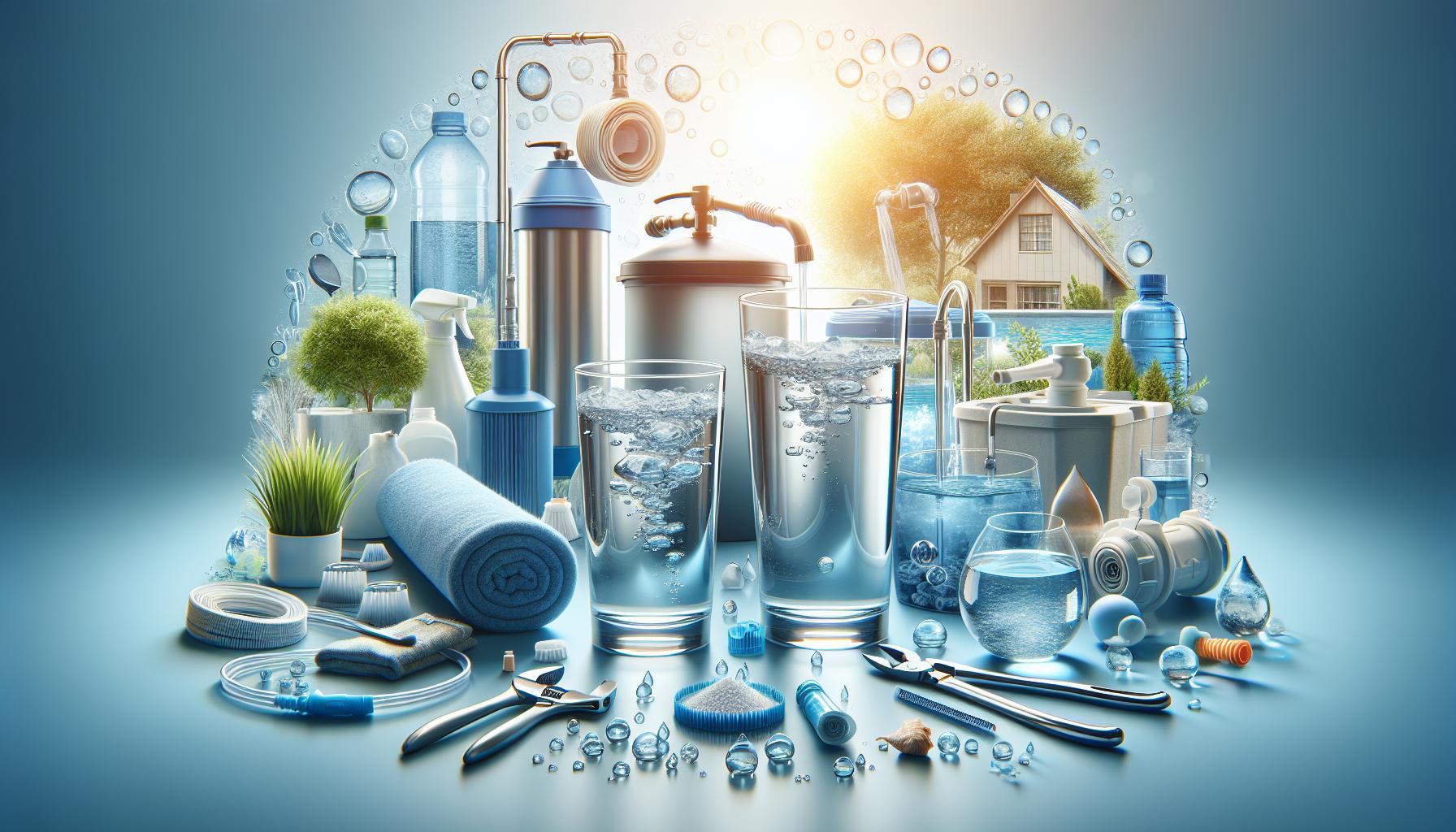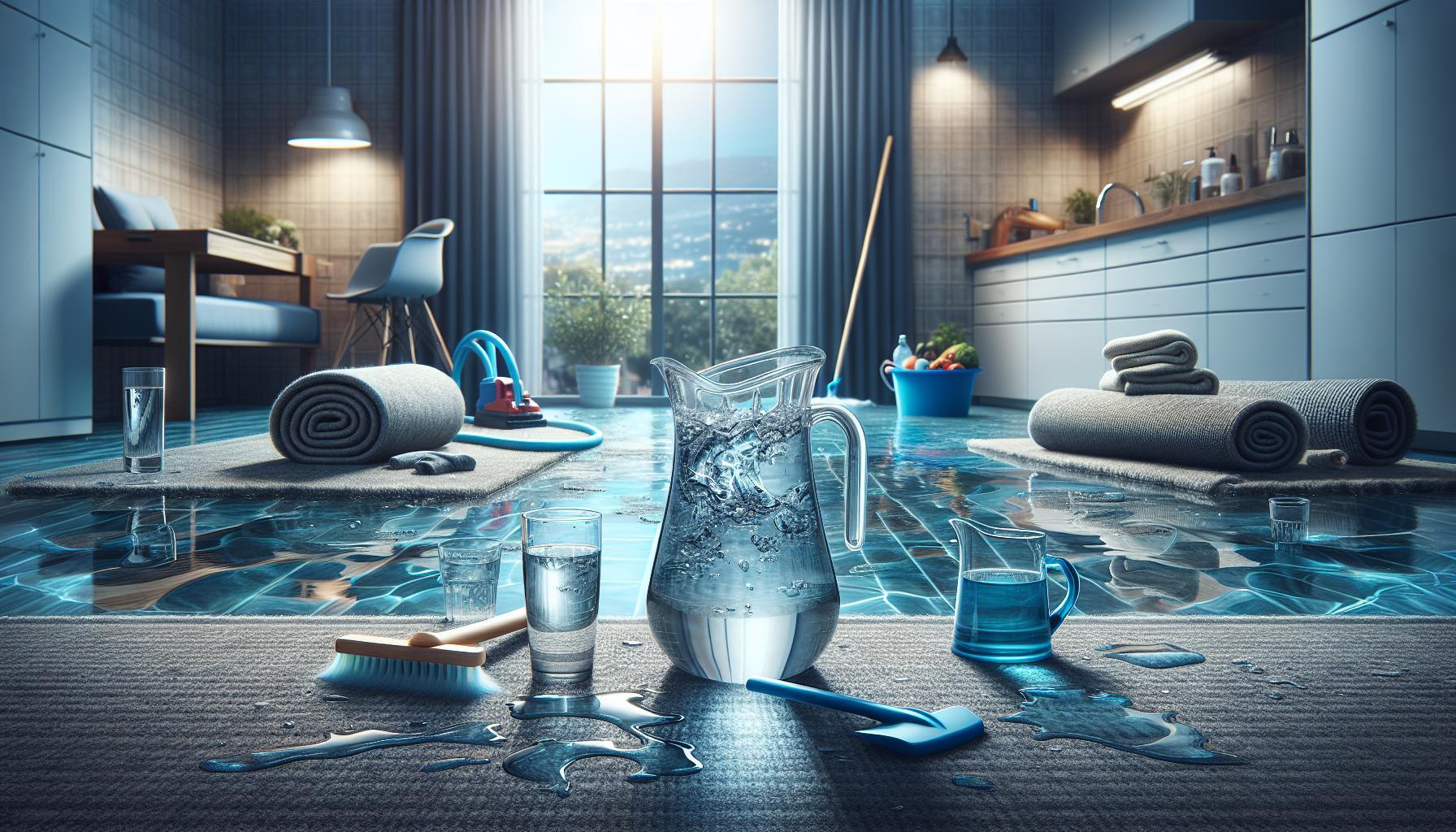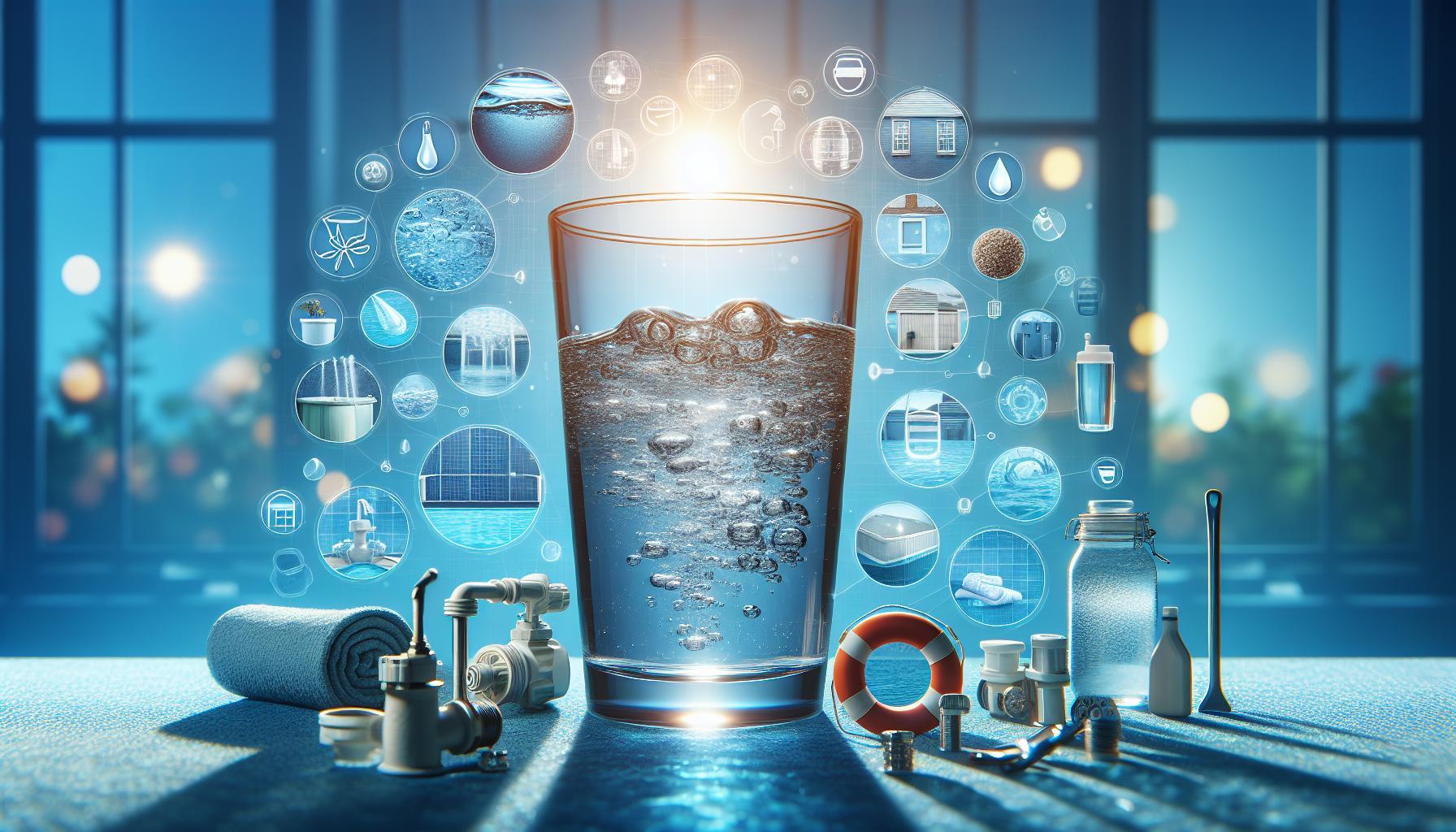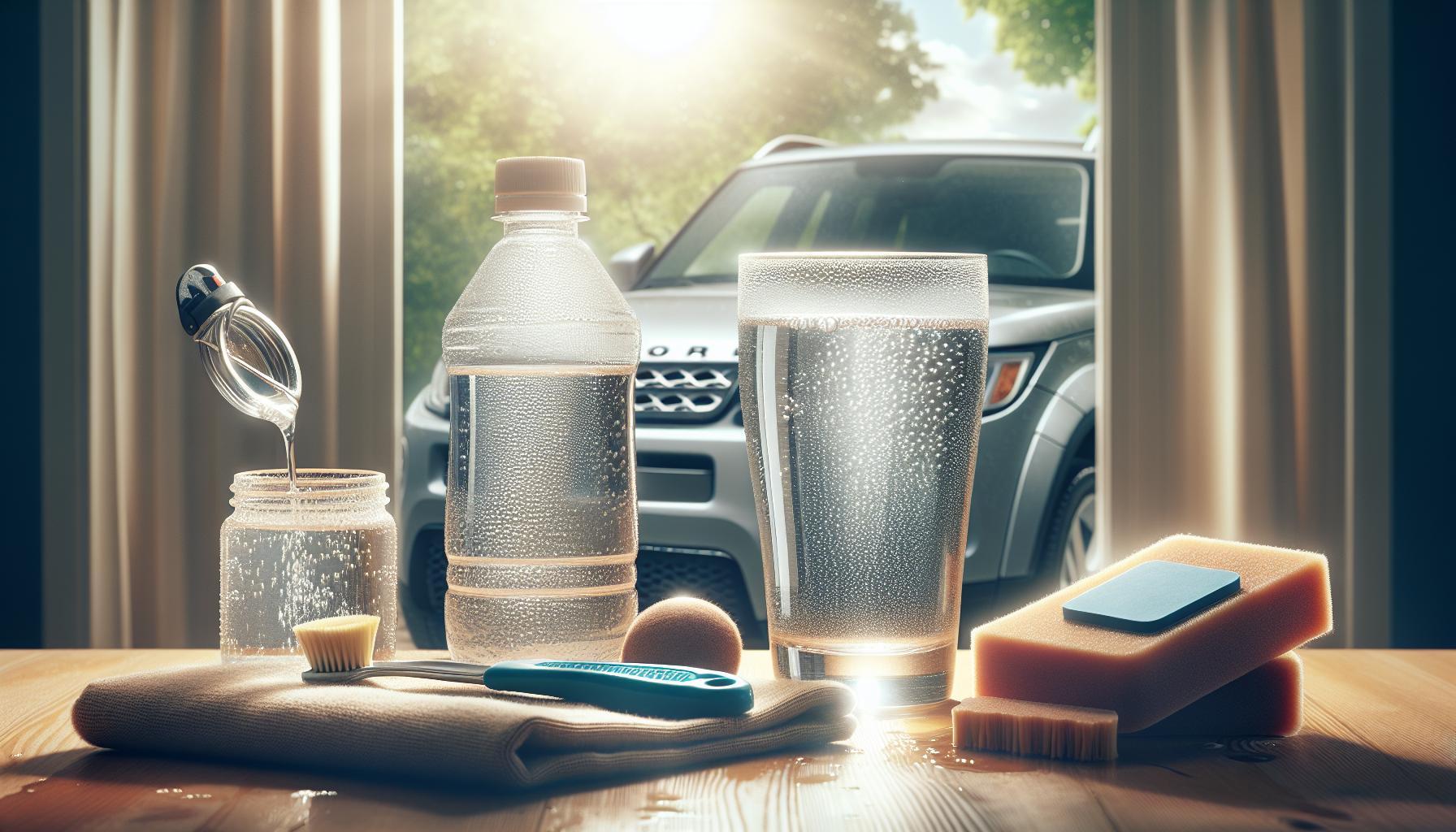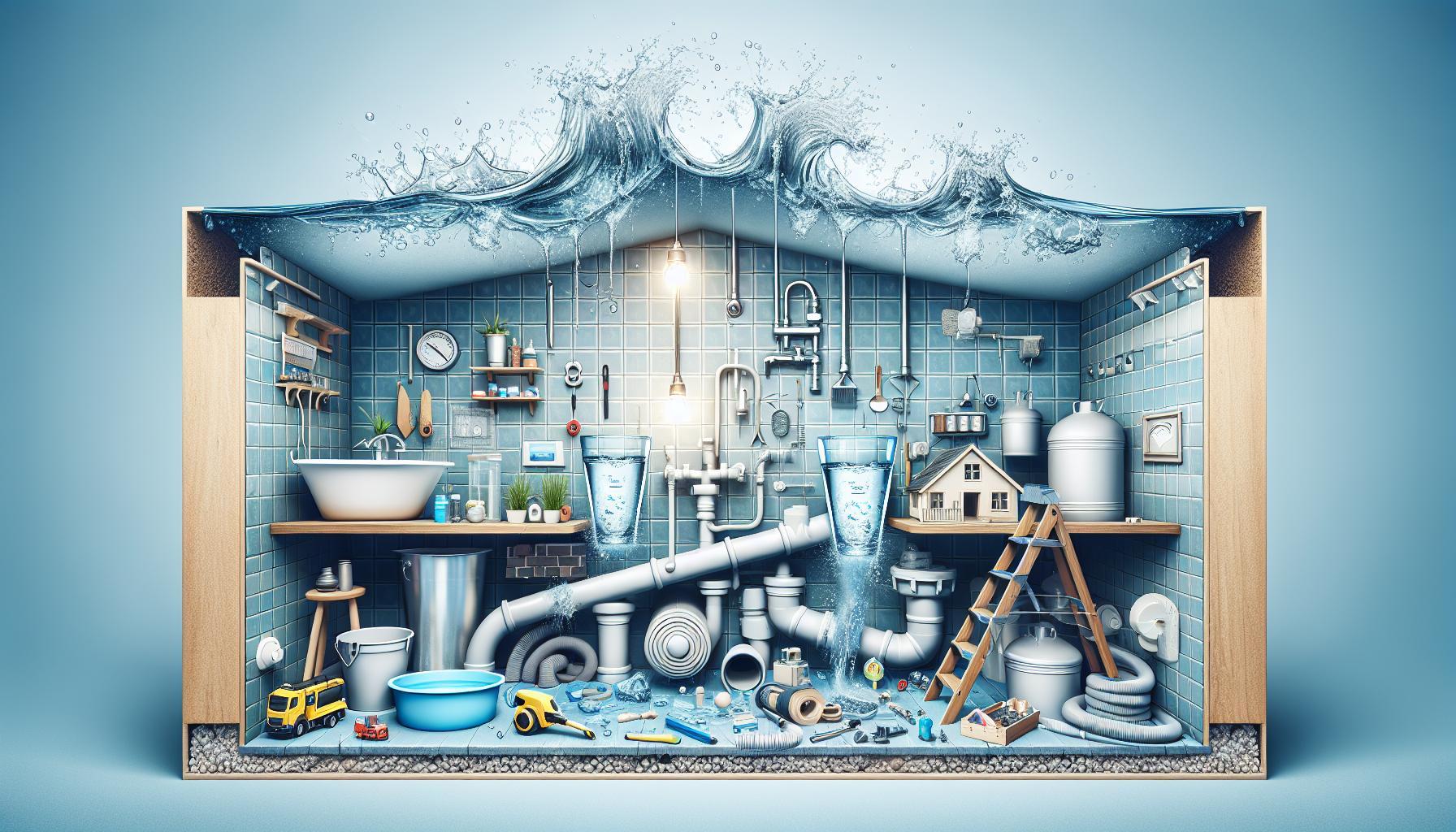Struggling with unsightly hard water stains on your beautiful granite surfaces? You’re not alone. These stubborn marks not only dull your countertop’s shine but can also diminish its overall appeal. In this guide, we provide simple, effective steps to restore your granite’s luster, ensuring it remains the stunning centerpiece of your home.
Understanding Hard Water and Its Effects on Granite Surfaces
Granite surfaces, revered for their beauty and durability, often encounter a common but annoying issue: hard water stains. These unsightly marks can detract from the elegance of your countertops and make maintenance feel like an uphill battle. Hard water itself is characterized by high mineral content, particularly calcium and magnesium, dissolved from the earth as water flows through soil and rock. When hard water dries on surfaces, these minerals are left behind, forming stubborn stains that can be particularly persistent on porous surfaces like granite.
What Causes Hard Water Stains?
The buildup of hard water stains is often the result of everyday activities such as washing dishes, cooking, and cleaning. These routine tasks can leave water droplets on your granite, which, upon evaporation, deposit mineral residues. In environments with high humidity or frequent water usage, the problem can worsen, making it essential to understand some key factors contributing to hard water stains on granite:
- Water Source: Minerals in tap water vary based on geographical location. Areas supplied with well water or certain municipal sources often have higher mineral content.
- Surface Porosity: Although granite is a durable and non-porous material, certain finishes and sealants can affect how water interacts with the stone, leading to increased staining.
- Frequency of Cleaning: Regular maintenance can prevent build-up, but neglecting to clean surfaces routinely can allow hard water stains to harden and become much more difficult to remove.
Physical and Aesthetic Effects of Hard Water on Granite
Beyond the visual distraction that hard water stains can create, they can also pose physical challenges to maintaining the integrity of your granite surfaces. Over time, accumulated mineral deposits can dull the finish of the stone and affect its luster. In some cases, unaddressed stains can lead to etching, making the surface more susceptible to damage. Regularly treating these stains not only preserves the beauty of your granite countertops but also ensures their longevity.
Best Practices for Prevention and Maintenance
To combat hard water stains effectively, incorporating proactive measures into your cleaning routine is vital. Here are some actionable steps to help you maintain granite surfaces and prevent hard water stains from becoming a significant problem:
- Use a Sealant: Regularly sealing your granite countertops can help protect against staining from hard water and other substances.
- Wipe Up Water Immediately: Prevent stains by promptly drying surfaces after spills or cleaning.
- Employ Proper Cleaning Techniques: Use pH-balanced cleaners that are safe for granite to avoid damaging the surface and to effectively remove any mineral deposits.
Understanding the effects of hard water on granite surfaces and being aware of effective prevention methods can save you considerable time and effort down the line. For persistent stains, refer to our detailed guide on how to remove hard water stains step-by-step, ensuring your granite retains its stunning appearance for years to come.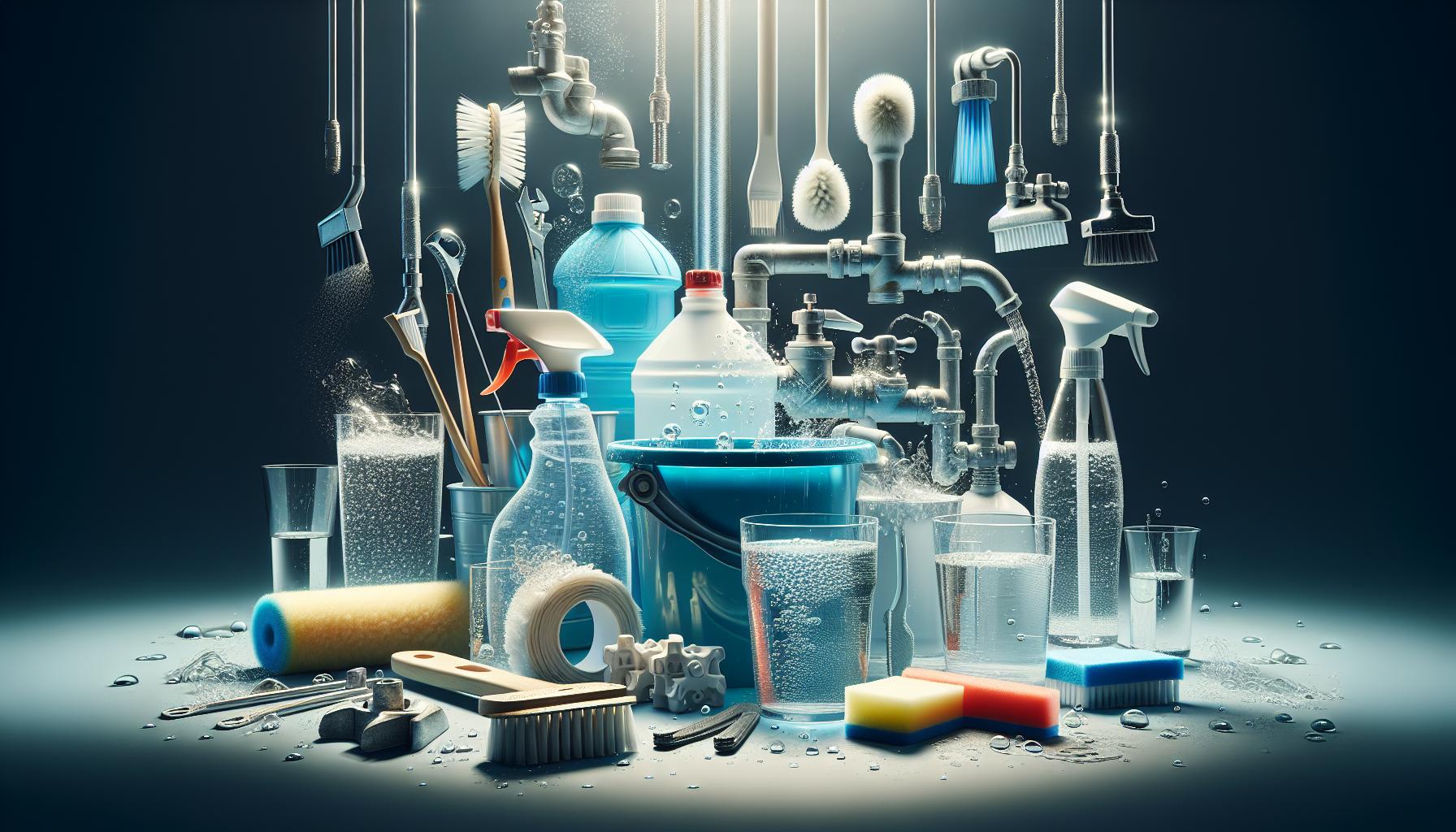
Essential Tools and Materials for Effective Stain Removal
When tackling hard water stains on granite, having the right tools and materials at your disposal can make all the difference between a frustrating endeavor and a successful one. Before diving into the removal process, gather the essentials that will enhance your effectiveness and efficiency. This preparation not only helps in achieving optimal results but also protects the integrity of your beautiful granite surface.
Essential Tools
To embark on your mission to eliminate hard water stains, ensure you have the following tools:
- Microfiber Cloths: These are ideal for wiping surfaces without scratching the granite.
- Soft-Bristled Brush: Perfect for scrubbing away stubborn stains without damaging the stone.
- Non-Abrasive Scrubbing Pad: A gentle pad can help lift stains without scratching.
- Measuring Cup: Necessary for mixing cleaning solutions accurately.
- Bucket: Ideal for containing water and cleaning solutions for easy application.
Effective Cleaning Solutions
Combining the right solutions with your tools is crucial for effective stain removal. Here’s a list of commonly used materials:
- Baking Soda: A gentle abrasive that helps lift stains when mixed with water.
- White Vinegar: Excellent for breaking down mineral deposits but should be used cautiously, as it can etch the granite surface.
- Liquid Dish Soap: Useful for creating a cleaning solution that’s tough on stains yet safe for your granite.
- Commercial Granite Cleaner: Formulated specifically for granite surfaces, these can be highly effective for tough stains.
Using these tools and materials from the outset can drastically improve the process outlined in your guide on removing hard water stains from granite. By ensuring that you are well-prepared, you can follow the step-by-step removal process with confidence, restoring your granite to its original elegance without risk of damage.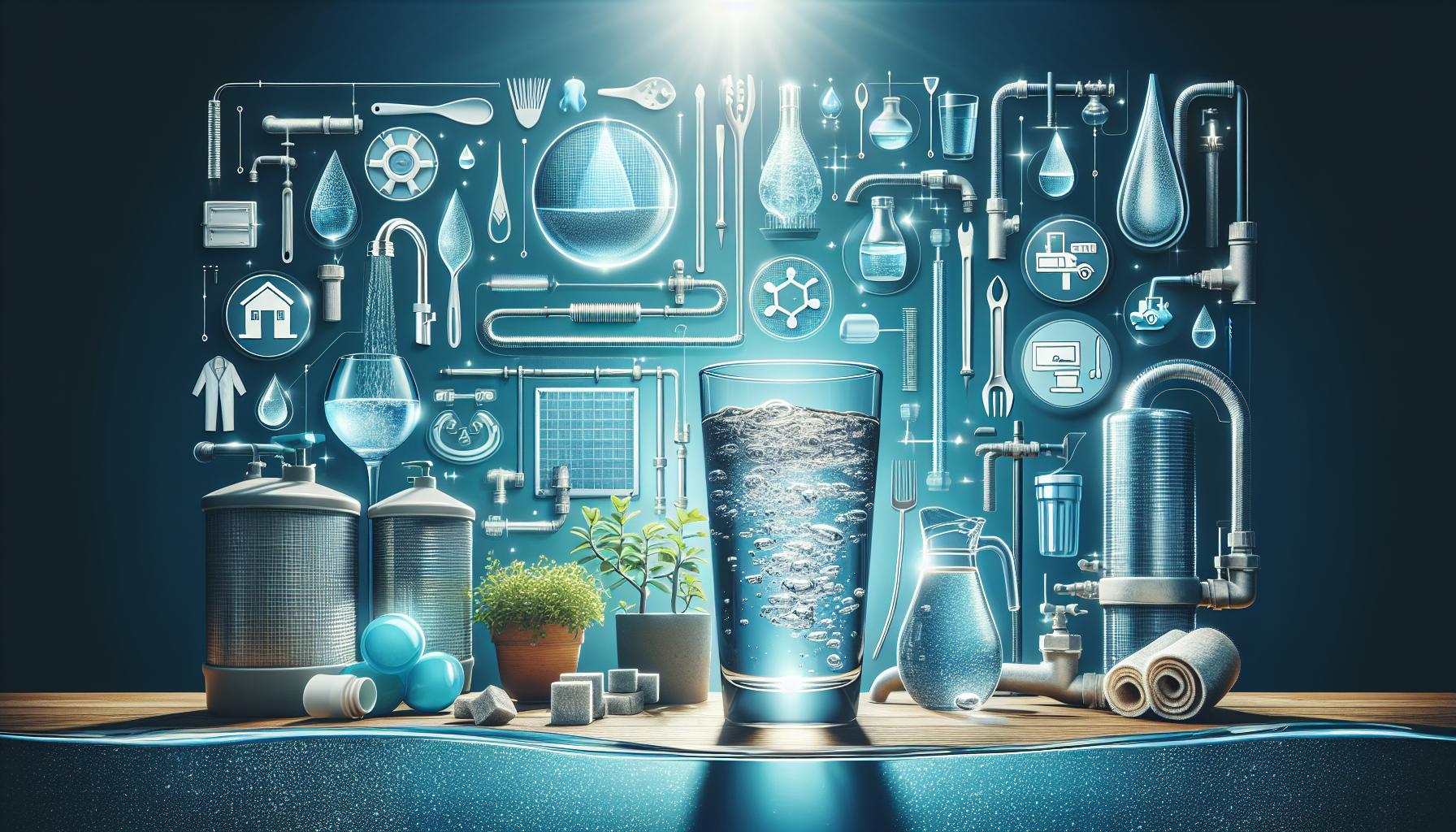
Simple Step-by-Step Techniques to Remove Hard Water Stains
Removing hard water stains from granite can seem daunting, but with the right approach, your surfaces can be sparkling clean. In many households, granite countertops and sinks are favorite features, yet they often bear the brunt of mineral deposits left behind from hard water. Fortunately, there are effective, step-by-step techniques to tackle these stubborn stains and restore your granite to its pristine state.
Gathering Your Supplies
Before diving into the cleaning process, ensure you have the following items ready:
- Soft cloths or microfiber towels
- White vinegar (optional, but effective for many surfaces)
- Baking soda
- Water
- A spray bottle
- Sealant for granite (if required)
Step-by-Step Removal Process
To effectively remove hard water stains from granite, follow these simple steps:
- Create a Baking Soda Paste: In a bowl, mix baking soda with water to form a thick paste. This natural abrasive will help lift the stains without scratching the granite.
- Apply the Paste: Spread the baking soda paste directly onto the hard water stains. Ensure the area is well-covered. Let it sit for at least 10-15 minutes.
- Gently Scrub: Using a soft cloth or sponge, gently scrub the stained area. Avoid using harsh scouring pads that can scratch the granite surface.
- Rinse: After scrubbing, rinse the area with warm water. Make sure all the paste is removed, as residual baking soda can leave a white film.
- Dry Thoroughly: Use a clean, dry cloth to wipe down the area. This prevents new water stains from forming immediately after a clean.
- Repeat if Necessary: For stubborn stains, you may need to repeat the process.
- Seal the Surface: After ensuring your granite is clean and dry, consider applying a granite sealer to protect against future stains. This is particularly important in areas with hard water issues.
Maintenance Tips
To keep hard water stains at bay in the future, incorporate these maintenance practices:
- Wipe down granite surfaces with a soft cloth after each use.
- Use coasters for beverages to minimize spills.
- Regularly clean surfaces with a pH-balanced cleaner designed for granite.
By following this step-by-step removal guide, the question of how to get hard water stains off granite will become a thing of the past. Keeping these surfaces clean not only enhances their appearance but also prolongs their lifespan, ensuring your kitchen or bathroom remains the beautiful focal point of your home.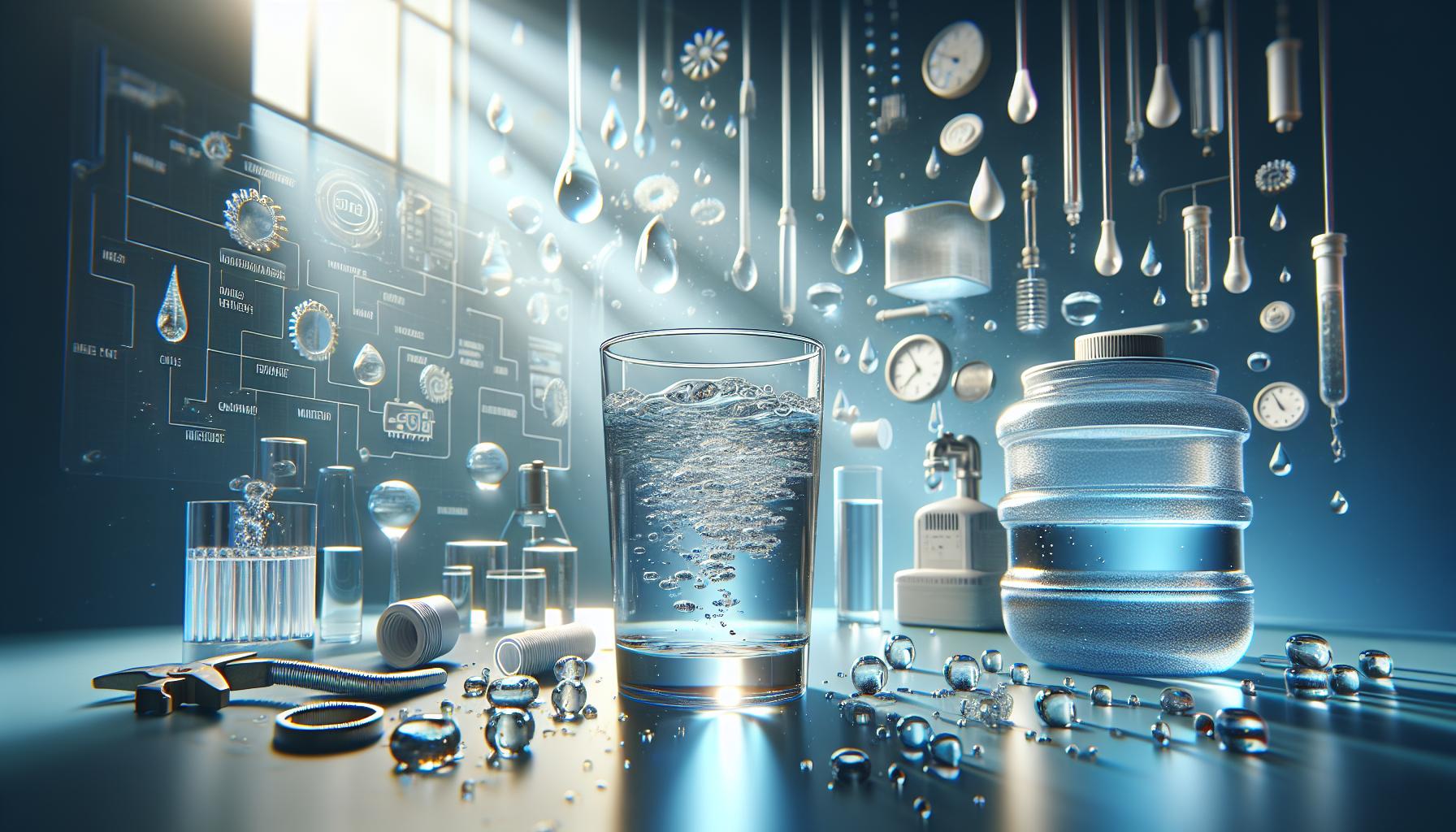
How to Prevent Hard Water Stains from Returning
Preventing hard water stains from returning is essential for maintaining the beauty of your granite surfaces. Regular maintenance not only keeps your granite looking pristine but also minimizes the effort needed to remove those stubborn stains in the future. One of the most effective methods is to incorporate a water softener into your plumbing system. Softened water significantly reduces the calcium and magnesium minerals that contribute to hard water stains, ensuring your granite surfaces remain free of residue.
To further protect your granite, consider these proactive steps:
- Wipe Up Spills Promptly: Immediately clean any spills, especially those containing water or acidic substances, to prevent staining.
- Use a Sealant: Regularly apply a high-quality granite sealer. This creates a protective barrier against water and stains, making cleaning easier and more effective.
- Choose Appropriate Cleaning Products: Avoid harsh chemicals and abrasive cleaners. Instead, opt for pH-balanced products designed for granite to prevent damage and buildup.
- Dry Surfaces After Use: Always dry countertops and surfaces after cleaning to prevent water from evaporating and leaving mineral deposits behind.
Additional Tips for Long-Term Maintenance
Implementing a simple cleaning routine can greatly reduce the likelihood of hard water stains returning. For regular care, use a mixture of vinegar and baking soda, which can be effective in breaking down mineral deposits without scratching the granite’s surface. For ongoing maintenance, develop a schedule to clean and reseal your granite every six months to a year, particularly if the surface experiences heavy use.
By understanding how to prevent hard water stains effectively, you’ll make the task of maintaining granite surfaces much more manageable. Following these strategies ensures that you won’t need to constantly refer back to resources like “How Do You Get Hard Water Stains Off Granite? Step-by-Step Removal Guide,” allowing you more time to enjoy your beautiful spaces without the worry of unsightly stains.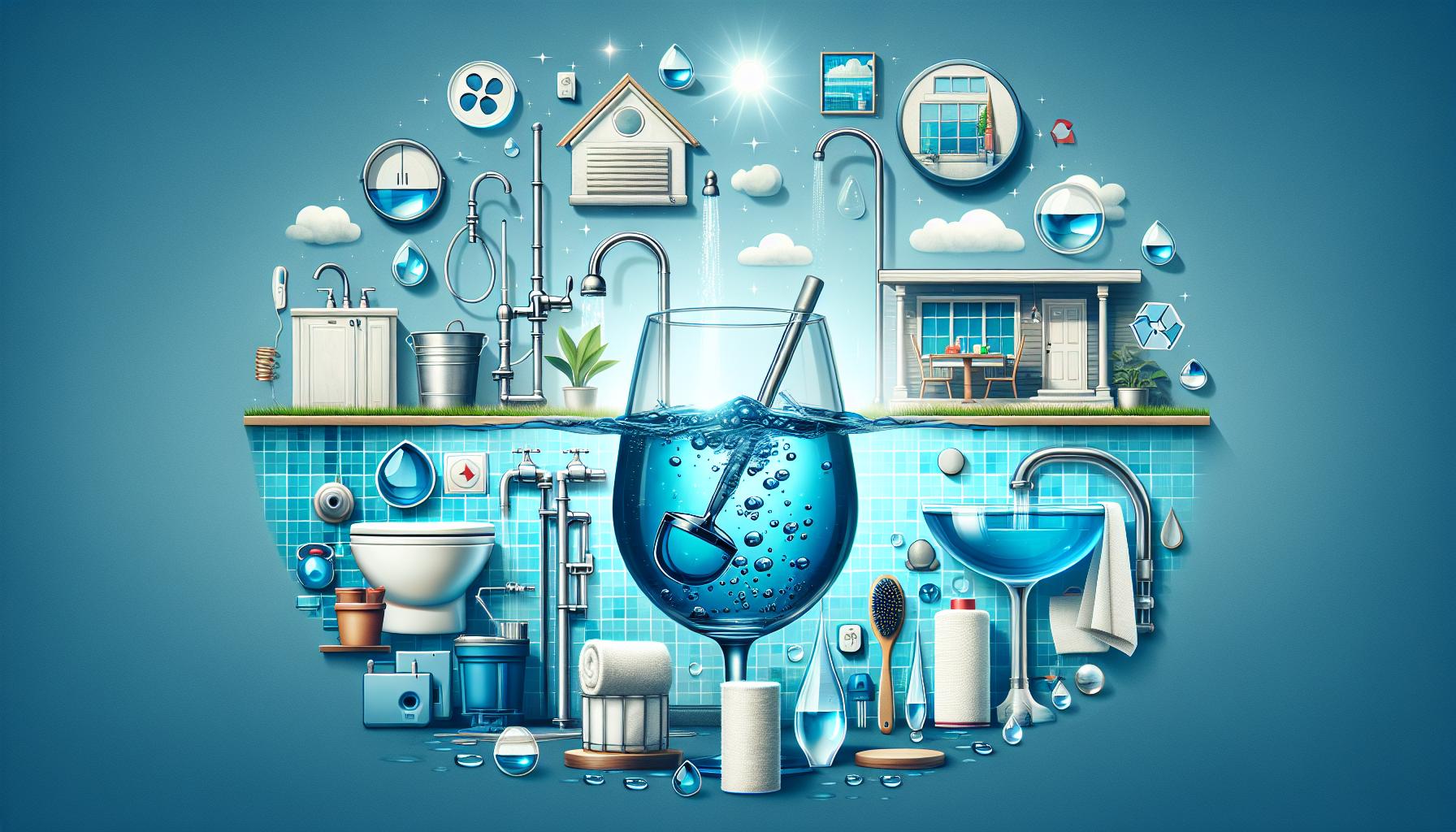
When to Seek Professional Help for Stubborn Stains
If you’ve tackled hard water stains on granite and still see stubborn marks that refuse to budge, it might be time to consider seeking professional help. Sometimes, despite our best efforts and the most effective DIY methods detailed in guides like ‘How Do You Get Hard Water Stains Off Granite? Step-by-Step Removal Guide,’ the stains can be deeply set or caused by additional factors such as etching or chemical damage, requiring expert intervention.
Signs That It’s Time to Call in Experts
Knowing when to get professional help can save time, effort, and potential damage to your precious granite surfaces. Here are some key indicators that it’s best to turn to a specialist:
- Persistent Stains: If stains remain despite repeated cleanings and specialized products, they may need advanced treatment.
- Surface Damage: If you notice dull spots or scratches that appear after attempting cleaning, a professional can assess and restore the finish.
- Incorrect DIY Attempts: Using harsh chemicals or abrasive techniques can lead to further damage; a professional will know the right treatments.
- Large Areas Affected: When multiple sections of your granite are stained, a professional can provide a comprehensive cleaning solution.
What to Expect from Professional Services
When you decide to seek help from professionals, you can expect a thorough evaluation of your granite’s condition and tailored treatments. Most professionals will offer the following services:
| Service | Description |
|---|---|
| Assessment | Experts will evaluate the type and extent of stains and damage. |
| Customized Cleaning | They will use specially formulated products to target stains without harming the stone. |
| Polishing and Sealing | After stain removal, they may polish the surface and apply a protective sealant. |
| Long-term Care Advice | Experts can provide tips on maintenance to prevent future stains. |
By recognizing the signs that it’s time to call in the experts, you ensure that your granite surfaces not only look their best but are also protected from future damage. In cases where stains seem impenetrable, professionals equipped with the right tools and expertise can restore the beauty of your granite beyond what basic DIY methods can achieve.
Eco-Friendly Alternatives for Stain Removal
The rising awareness of environmental sustainability has led many homeowners to seek eco-friendly solutions for everyday challenges, including tough stains on surfaces like granite. Traditional cleaning products can be harsh, not just on surfaces but also on our planet. Fortunately, there are numerous natural alternatives that effectively tackle hard water stains while keeping the environment in mind.
Natural Solutions for Stain Removal
Utilizing everyday household items, you can create powerful stain removers without harsh chemicals. Here are some effective eco-friendly alternatives to consider when asking yourself, “How do you get hard water stains off granite?”
- Vinegar and Water Solution: The acetic acid in vinegar makes it a great natural cleaner. Mix equal parts of white vinegar and water in a spray bottle. Spray it directly on the stained area, let it sit for a few minutes, and gently scrub with a soft cloth.
- Baking Soda Paste: For tougher stains, combine baking soda with a small amount of water to form a paste. Apply this paste to the stain, let it sit for 10 to 15 minutes, and then scrub gently with a soft sponge before rinsing off.
- Lemon Juice: The citric acid in lemon juice can be very effective for stain removal. Apply lemon juice directly onto the stained surface, allowing it to sit for a few minutes. Rinse thoroughly with water afterward.
- Castile Soap: This natural soap is both biodegradable and effective. Mix a few drops of Castile soap with warm water and use it with a soft cloth to clean the stained area. Rinse well to ensure no soap residue remains.
Quick Reference: Eco-Friendly Stain Removal Table
| Eco-Friendly Ingredient | How to Use | Effectiveness |
|---|---|---|
| Vinegar | Mix equal parts of vinegar and water, spray and scrub. | Good for light to moderate stains. |
| Baking Soda | Make a paste with water, apply, scrub, and rinse. | Excellent for tougher stains. |
| Lemon Juice | Apply directly, let sit, then rinse. | Effective for mineral build-up. |
| Castile Soap | Mix with water, use a soft cloth to clean. | Great for general cleaning. |
With these natural stain removers, you can keep your granite surfaces looking pristine without resorting to chemical-laden products. Every effort counts in reducing our environmental footprint while maintaining the beauty of our homes!
Tips for Maintaining the Beauty of Your Granite Countertops
Granite countertops are not only a stunning addition to any kitchen but also a significant investment that requires proper care to maintain their beauty and durability. One of the most common challenges faced by granite owners is the formation of hard water stains, which can detract from the stone’s natural elegance. To prevent permanent damage and ensure your countertops continue to dazzle, here are some essential maintenance tips.
Regular Cleaning
To keep your granite countertops looking fresh and beautiful, it’s crucial to clean them regularly. Use a soft cloth or sponge along with a mild dish soap mixed with warm water for daily cleaning. Avoid harsh chemicals or abrasive cleaners, as they can dull the finish. After cleaning, make sure to dry the surface thoroughly to prevent water spots and build-up.
Seal Your Countertops
Applying a high-quality granite sealer is a vital step in maintaining your countertops. Sealing not only enhances the stone’s shine but also protects against stains and spills. It’s generally recommended to reseal your granite every 6 to 12 months, depending on your usage and the environment. Conduct a simple water test by dropping water on the surface; if it beads up, your seal is intact. If the water absorbs, it’s time to reapply the sealer.
Address Stains Promptly
Prompt attention to stains can make a world of difference. If you notice a hard water stain, follow a step-by-step removal guide specifically designed for granite surfaces. For instance, you can create a paste using baking soda and water. Apply it to the stain, cover it with plastic wrap, and let it sit for 24 hours. This allows the paste to absorb the stain. Rinse the area with water and dry it thoroughly.
Avoiding Damage
To protect your granite countertops from scratches or heat damage, it’s best to avoid placing hot pans directly on the surface. Instead, use trivets or hot pads, and always use cutting boards while preparing food. Additionally, consider using coasters under drinks to prevent rings from forming and always wipe up spills promptly, particularly acidic substances like lemon juice or vinegar that can etch the stone.
By following these maintenance tips, you can significantly enhance the longevity and appearance of your granite countertops, ensuring they remain a focal point in your home for years to come.
Frequently asked questions
How do you get hard water stains off granite?
You can effectively remove hard water stains off granite using a simple mixture of baking soda and water. Make a paste, apply it to the stained area, and let it sit for 10-15 minutes before scrubbing lightly and rinsing with clean water.
This method works because baking soda is mildly abrasive, which helps lift the stains without scratching the granite. Always test in a small area first to ensure the granite surface is not affected. For more detailed removal techniques, check out our step-by-step removal guide.
What is the best cleaner for hard water stains on granite?
The best cleaner for hard water stains on granite is a solution designed specifically for natural stone surfaces. Look for products that are labeled as pH-balanced and free from harsh chemicals.
These specialized cleaners are formulated to dissolve mineral deposits without damaging the granite’s finish. Using a non-abrasive sponge or cloth will help avoid scratches. Always follow the manufacturer’s instructions for optimal results.
Why does hard water leave stains on granite surfaces?
Hard water leaves stains on granite surfaces due to the presence of dissolved minerals, primarily calcium and magnesium, which accumulate and form deposits when the water evaporates.
Over time, these residues can become stubborn stains that mar the beauty of your granite countertops. Regular maintenance and immediate cleaning after spills can help prevent these stains from forming.
Can I use vinegar to remove hard water stains from granite?
No, it’s not recommended to use vinegar on granite as it is acidic and can damage the stone. Vinegar can cause the granite’s finish to degrade and lead to dull spots.
Instead of vinegar, opt for a baking soda paste or a commercial granite cleaner. This choice will keep your granite looking its best while effectively addressing hard water stains.
Is there a natural method for removing hard water stains from granite?
Yes, a natural method for removing hard water stains from granite involves using a baking soda and water paste. This method is safe, effective, and environmentally friendly.
Simply mix equal parts baking soda and water to form a paste, apply it to the stains, let it sit, and then scrub gently. This approach not only lifts the stains but is also safe for your family and pets.
How can I prevent hard water stains on my granite surfaces?
To prevent hard water stains on granite, routinely clean spills and avoid letting water sit on the surface. Using coasters can help protect the stone from mineral buildup.
Additionally, sealing your granite annually can create a protective barrier against stains. For more insight on granite care, refer to our comprehensive guide on granite maintenance.
What tools do I need to remove hard water stains from granite?
To remove hard water stains from granite, you will need a soft sponge or cloth, a bowl for mixing the cleaning paste, and possibly a plastic scraper for stubborn stains.
A microfiber cloth is excellent for wiping down surfaces after cleaning. Avoid abrasive pads as they can scratch your granite. Regular access to these tools will help you maintain the beauty of your granite surfaces.
In Retrospect
In conclusion, tackling hard water stains on granite doesn’t have to be a daunting task. By following our step-by-step removal guide, you’ve equipped yourself with the practical knowledge needed to restore your surfaces to their former glory. Remember, using the right materials and techniques can make all the difference in achieving that sparkling finish while protecting the integrity of your granite. We encourage you to carry out this process with confidence and keep exploring additional tips on maintaining your home’s surfaces. Your granite deserves the best care, and with the right approach, you can ensure it stays beautiful for years to come. Happy cleaning!

